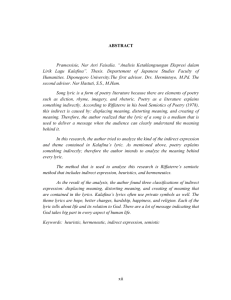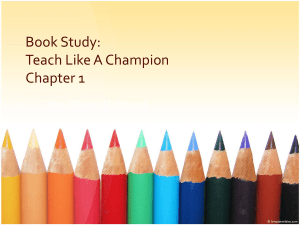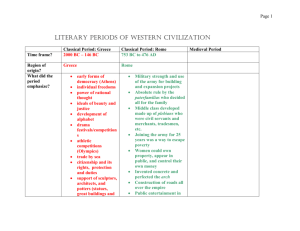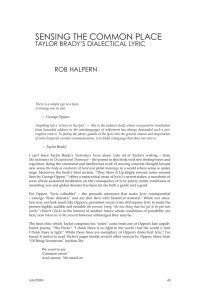Chabot College February 1993 Removed Fall 2006
advertisement
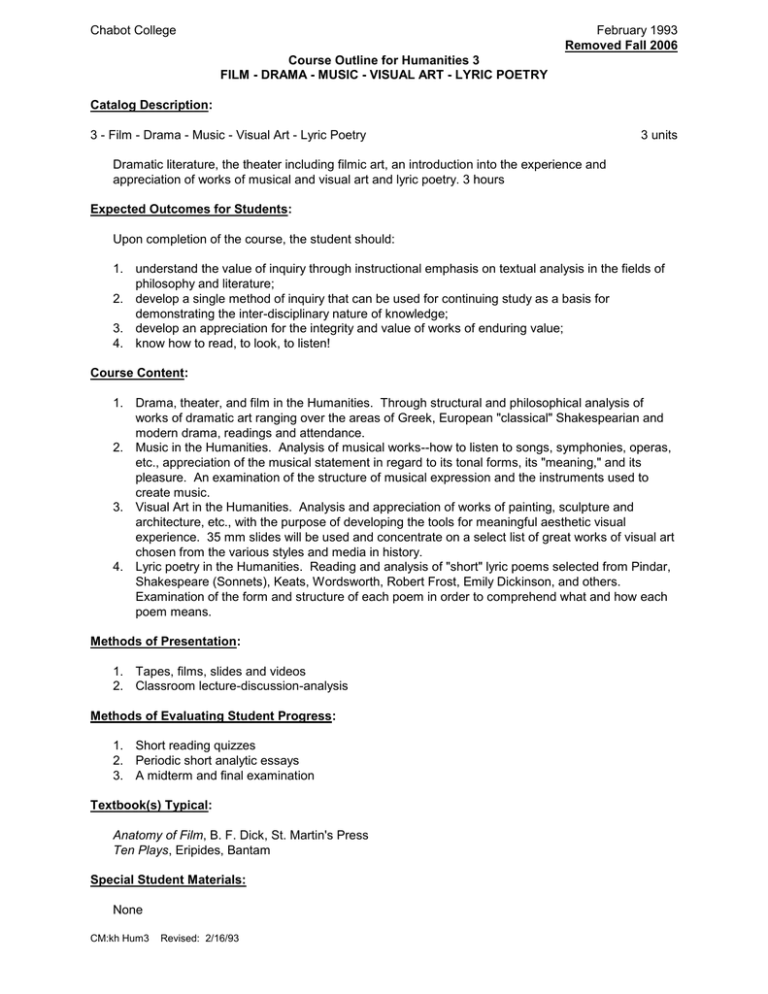
Chabot College February 1993 Removed Fall 2006 Course Outline for Humanities 3 FILM - DRAMA - MUSIC - VISUAL ART - LYRIC POETRY Catalog Description: 3 - Film - Drama - Music - Visual Art - Lyric Poetry 3 units Dramatic literature, the theater including filmic art, an introduction into the experience and appreciation of works of musical and visual art and lyric poetry. 3 hours Expected Outcomes for Students: Upon completion of the course, the student should: 1. understand the value of inquiry through instructional emphasis on textual analysis in the fields of philosophy and literature; 2. develop a single method of inquiry that can be used for continuing study as a basis for demonstrating the inter-disciplinary nature of knowledge; 3. develop an appreciation for the integrity and value of works of enduring value; 4. know how to read, to look, to listen! Course Content: 1. Drama, theater, and film in the Humanities. Through structural and philosophical analysis of works of dramatic art ranging over the areas of Greek, European "classical" Shakespearian and modern drama, readings and attendance. 2. Music in the Humanities. Analysis of musical works--how to listen to songs, symphonies, operas, etc., appreciation of the musical statement in regard to its tonal forms, its "meaning," and its pleasure. An examination of the structure of musical expression and the instruments used to create music. 3. Visual Art in the Humanities. Analysis and appreciation of works of painting, sculpture and architecture, etc., with the purpose of developing the tools for meaningful aesthetic visual experience. 35 mm slides will be used and concentrate on a select list of great works of visual art chosen from the various styles and media in history. 4. Lyric poetry in the Humanities. Reading and analysis of "short" lyric poems selected from Pindar, Shakespeare (Sonnets), Keats, Wordsworth, Robert Frost, Emily Dickinson, and others. Examination of the form and structure of each poem in order to comprehend what and how each poem means. Methods of Presentation: 1. Tapes, films, slides and videos 2. Classroom lecture-discussion-analysis Methods of Evaluating Student Progress: 1. Short reading quizzes 2. Periodic short analytic essays 3. A midterm and final examination Textbook(s) Typical: Anatomy of Film, B. F. Dick, St. Martin's Press Ten Plays, Eripides, Bantam Special Student Materials: None CM:kh Hum3 Revised: 2/16/93

